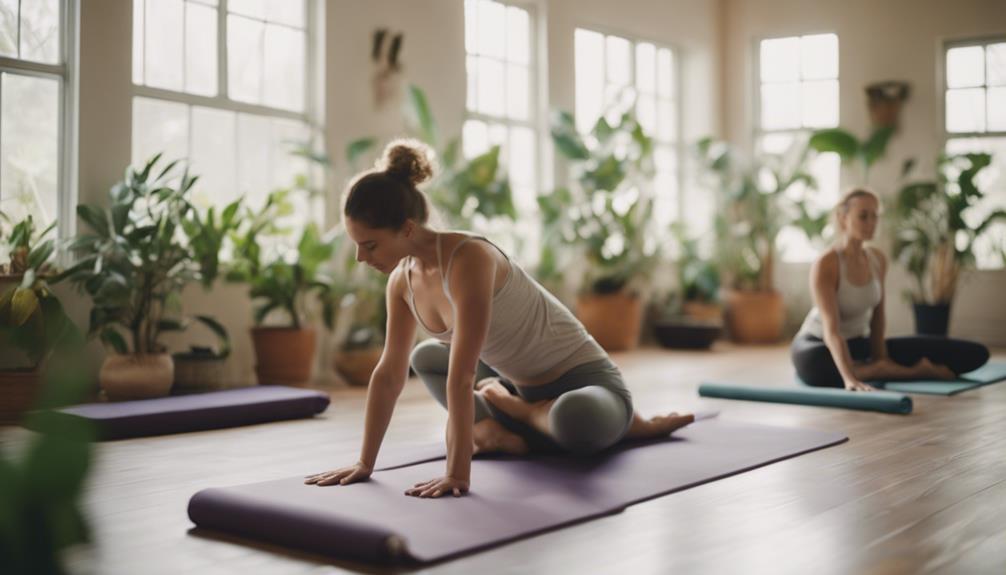Is Vinyasa Yoga Hard? Let’s Explore the Flow!
When it comes to yoga, many enthusiasts and newcomers alike often wonder, "Is Vinyasa yoga hard?" It’s a question that echoes through studios and online forums as practitioners seek to understand the intricacies of this dynamic practice. Vinyasa yoga, characterized by its flowing sequences that synchronize breath with movement, can seem daunting at first glance. However, it’s essential to peel back the layers and discover the joyful journey that awaits those who dare to embrace it.
In exploring whether Vinyasa yoga is hard, we must first appreciate its essential components. While it may indeed present challenges, it also offers numerous benefits, including improved flexibility, strength, and mindfulness. For many, the rhythm of Vinyasa creates a sense of unity between body and mind. The practice can be both stimulating and soothing, leaving many to wonder – is it hard or just a delightful way to unwind and connect with oneself?
Ultimately, the difficulty of Vinyasa yoga often lies in the individual’s perspective. As you step onto the mat, you embark on a personal journey that encourages self-discovery and growth. So, let’s dive in and explore what makes Vinyasa yoga feel challenging for some and liberating for others!
Embrace the Challenge: Is Vinyasa Yoga Hard or Just Fun?
The focus of Vinyasa yoga is on the flow, which allows practitioners to experience a meditative state as they transition from one pose to another. For beginners, this can feel overwhelming, leading to the question: is Vinyasa yoga hard? The answer often depends on one’s prior experience and comfort level with yoga. If you’re accustomed to slower-paced styles, the fast transitions may seem challenging. However, with practice, the fluidity can become a rewarding dance that ignites the senses and energizes the soul.
One of the key aspects of Vinyasa is that it encourages modifications. Instructors often remind participants that yoga is a personal journey, and it’s perfectly acceptable to adapt poses or slow down the pace to fit individual needs. This adaptability makes Vinyasa less about "hard" and more about exploration and play. As you learn to listen to your body, you’ll find that the essence of Vinyasa exceeds physical challenges, offering a chance to build strength while cultivating a sense of joy.
Moreover, the community aspect of Vinyasa yoga can transform the experience into a fun and engaging adventure. Practicing together with others fosters a supportive environment where everyone encourages each other to grow. When you share this journey, the challenges of Vinyasa yoga feel less daunting and more like shared laughter in the face of a collective endeavor. So, as you consider the question, "Is Vinyasa yoga hard?" remember that it can also be a thrilling pathway to joy and connection!
Finding Your Flow in Vinyasa Yoga
As we wrap up our exploration of whether Vinyasa yoga is hard, it’s essential to recognize that the experience is unique for everyone. While some may face challenges in mastering the flow, others may find themselves reveling in the dance of movement and breath. The key takeaway here is to approach Vinyasa with an open heart and a willingness to learn.
Understanding your own limitations and embracing modifications can transform any perceived difficulty into an opportunity for growth. Rather than focusing solely on the question of "Is Vinyasa yoga hard?" shift your perspective to celebrate the journey of self-discovery and connection that this vibrant practice fosters.
So, whether you’re a seasoned yogi or a curious beginner, dive into the world of Vinyasa yoga with enthusiasm! Every class is a chance to explore the balance of challenge and joy, transforming your practice into a beautiful dance of mind, body, and spirit.
